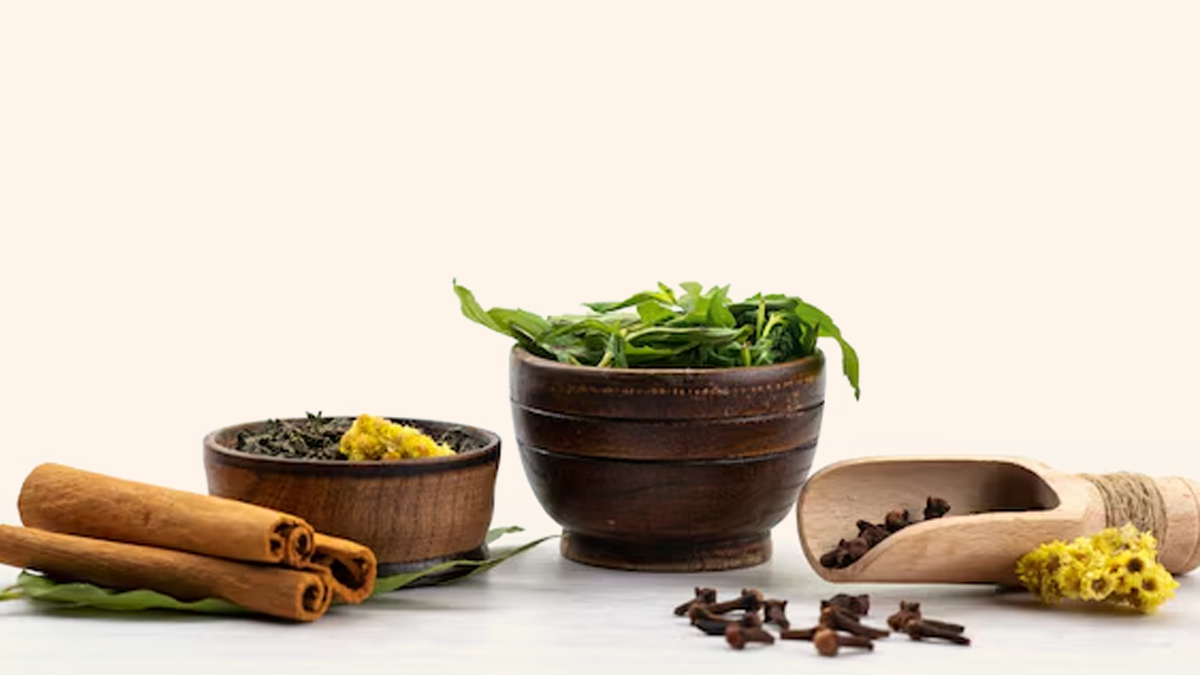
When you're expecting, the advice never stops. One moment, your aunt is handing you a glass of ajwain water to relieve bloating; the next, your doctor is warning you against unverified herbal teas. These home remedies feel familiar, comforting, and rooted in love. But at the same time, doctors might tell you something completely different. That’s when it gets confusing. What’s safe? What’s not?
Table of Content:-
We spoke to our experts who helped us understand when home remedies can be helpful and when it’s better to follow medical advice.
The Emotional Comfort of Traditions

"As healthcare providers, we recognise the emotional comfort and cultural familiarity that home remedies often bring to expectant mothers. These practices are part of many families' narratives and can provide a sense of control during a deeply personal and transformative time," said Dr Mitul Gupta, Senior Consultant, Obstetrics and Gynaecology, Cocoon Hospital, Jaipur.
Also Read: Dry Fruits in Pregnancy: Are They Safe and Healthy for You?
The Medical Reality of Prenatal Care
However, pregnancy is also a medically sensitive period where every intervention, whether natural or clinical, has physiological consequences. The line becomes blurred when traditional practices are adopted as alternatives to medical advice, especially when their safety or efficacy hasn’t been scientifically verified.
“For example, the casual use of herbal teas marketed as 'natural' can sometimes have unintended effects like stimulating uterine contractions or interfering with prescribed medications. Dietary habits that may seem harmless could mask deeper concerns, such as nutrient deficiencies or gastrointestinal issues, which might lead to inappropriate self-medication. The assumption that all 'natural' solutions are safe is not only inaccurate but can sometimes pose risks to both mother and baby,” added Dr Gupta.
This is not to discredit the value of traditional wisdom. Instead, we advocate for open and honest conversations between patients and providers. When mothers feel safe sharing their cultural beliefs, it enables us to develop care plans that are respectful, collaborative, and, most importantly, medically sound.
A study published in Frontiers in Pharmacology revealed that approximately 20% of pregnant women reported using herbal medicines during their most recent pregnancy. Notably, 40% of these herbs were found to be contraindicated or recommended for use with caution during pregnancy. Despite this, only half of the women discussed their herbal medicine use with obstetric care providers, highlighting a communication gap that could have implications for maternal and foetal health.
Ultimately, professional prenatal care must be personalised and grounded in clinical insight. Home remedies can have a supportive role, but they should complement, not substitute the guidance of qualified healthcare professionals. The well-being of both mother and child depends on it.
Also Read: Celebrate Motherhood: Safe And Ethical Surgical Solutions For Post-Pregnancy Body Changes
What Doctors Want Expecting Mothers to Know
“The pre-natal period starts from the date of conception till childbirth. This period has three trimesters. Symptoms like nausea, vomiting, acidity, and vomiting are common in the first trimester. Most symptoms can be managed at home if they're not very severe,” said Dr Koshalya Sambyal, MD - Guru Nanak Mission Hospital, Jammu.
The best advice is to eat a healthy diet with high-fibre foods. Drinking plenty of water and performing light exercises is vital, but consulting a doctor is still important during this period. While this is easy in cities, it can become challenging in rural areas because doctors are not nearby. Home remedies are valuable in villages. A long time ago, ladies were treated only by elderly women and midwives.
At present, though medical science has made significant advancements, home remedies are becoming less popular; however, they still play a crucial role. With the help of Ultrasound Sonography (USG), colour Doppler, and various other investigations, both the mother and the baby are safe.
“As far as the issue of drawing the line is concerned, it depends on the circumstances, a woman's status, education, economic situation, where she lives, and the severity of her symptoms. In my opinion, doctor-approved advice is more important than anything else,” added Dr Sambyal.
“If it's not possible to get a doctor to the home, home remedies become very important. As a doctor, I advise women to use medications for minor issues, such as colds, coughs, back pain, and headaches. Simple applications like balm or hot formulations are advised, as these are safe for both mother and baby,” she concluded.
[Disclaimer: This article contains information provided by an expert and is for informational purposes only. Hence, we advise you to consult your professional if you are dealing with any health issue to avoid complications.]
Also watch this video
How we keep this article up to date:
We work with experts and keep a close eye on the latest in health and wellness. Whenever there is a new research or helpful information, we update our articles with accurate and useful advice.
Current Version
